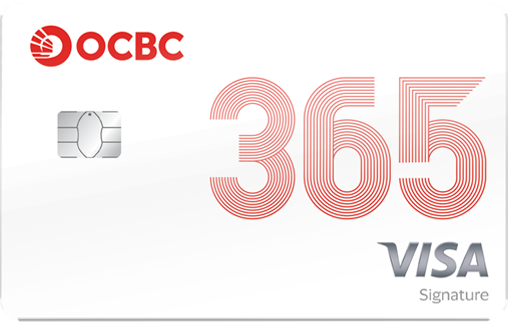Do the right thing
Do the right thing
The Earth is warming up. Wealth inequality has worsened. The gender pay gap persists. These are among the biggest social and environmental ills facing the world today. Investors want to help. After all, the quality of life is determined by more than just money. The hope is that through the voting power of their dollar, they will be able to help steer economic activity in the right direction.
Going mainstream
And perhaps they can. Traditionally, little regard is given to the sustainability of a company’s actions beyond the bottom line. Sustainability mattered where dividend payments or profits are concerned. The environmental or social consequences of corporate actions mattered less in valuing investment opportunities. But this is not the case today. The call for social responsibility and collective action has triggered a movement. Socially responsible investing has taken root. It is slowly moving out of a niche territory and into the mainstream.
A useful signpost of the growing acceptance of sustainable investing in the world today is the steady rise in the number of signatories committed to the UN-led Principles for Responsible Investment. Nearly 2,400 asset owners and managers representing US$86.3 trillion in assets under management (AUM) globally have signed up so far. This is a marked improvement from 2006, where only 63 asset owners and managers with US$6.5 trillion worth of AUM endorsed the UN principles.
About the same thing in so many words
Socially responsible investing or sustainable investing can be described as an investment approach that is guided by the aim of achieving a better and more sustainable future for society as a whole. The collective betterment of society is included as a key criterion when assessing an investment opportunity.
More specifically, companies are judged on environmental, social and governance factors (also referred to as ESG) in the investment process. Taken loosely, ESG, sustainable investing and socially responsible investing are one and the same. The key idea is to invest in companies with sustainable businesses, in the holistic sense of the word.
Good concept, but how to execute?
Like many things, ESG sounds good as a concept. But how would one systematically incorporate ESG factors in the investment process? Fortunately, a great deal of work and research through the years have gone into creating a variety of ESG scoring frameworks to identify companies with better ESG profiles. Sustainable businesses tend to be companies with better environmental standards, employee relations and higher proportion of institutional ownership and independent directors and this is valued in the marketplace.
Global financial data providers such as Bloomberg, Refinitiv, MSCI, FTSE and S&P Dow Jones Indices have progressively offered more refined ESG securities ratings and benchmarks as a way to screen good ESG names from the bad. This has helped to improve and expand investors’ ability to integrate ESG criteria into their investment process.
Will investors have to sacrifice returns to do the right thing?
At its most rudimentary, investing is about earning financial returns over time. Narrowing one’s investment opportunity set to just companies that do well on the ESG scale necessarily invites the question if investors are unnecessarily sacrificing returns just to do good.
A 2018 review of academic research by the NYU Stern School of Business and quantitative investment firm QMA suggests that the answer is an unequivocal no. There is no strong evidence of a significant difference in the returns earned by firms with high or low ESG ratings. Instead, their research shows that companies with better ESG profiles tend to be able to borrow more cheaply and enjoy higher credit rankings and lower cost of equity capital. Essentially, companies with better ESG scores are better quality assets.
Research from MSCI corroborates this. They show that companies with strong ESG practices relative to their peers are more profitable, have less volatile earnings and are better at mitigating serious business risk that can lead to large financial losses and bankruptcies. Such quality assets can provide some downside protection to portfolios in times of market stress.
Even among investors actively engaged in impact investing – investing in companies and organisations primarily involved in creating social good – they have not set portfolio return targets below market returns, which shows that these sophisticated investors do not believe they have to sacrifice returns just to pursue a social good. In fact, 66% of the 266 impact investors surveyed in the Global Impact Investing Network’s Annual Impact Investor Survey last year, stated that they were principally targeting market rate returns. 19% aimed for close to but below market returns while 15% aimed for capital preservation.
Are companies moving in this direction?
Whether they had intended to or not, businesses are already moving in the direction of sustainability. After all, companies operate within a larger social context. With greater public awareness and activism around environmental and social issues, it is vital for companies to stay in step with the times.
At a time of heightened sensitivity to these issues, companies are increasingly conscious about the significant downside risks to brands and reputations if they were perceived to be socially irresponsible. Indeed, there is a desire to manage ESG-related risks, whether or not one would use those terms specifically. Scoring low on published ESG metrics relative to industry peers is not a good idea as it could be detrimental to the company’s market value.
Chasing the Millennial money
Indeed, the greatest champions of socially responsible investing are the Millennials. According to a United States Treasury survey, millennials are "investing in organizations that prioritise the greater good more than any previous generation". After all, it is their generation that will have to bear the brunt of deteriorating environmental conditions and worsening social structures. Better education, an increasingly global perspective due to social media and greater awareness about these present problems have led Millennials to favouring sustainable businesses.
Express yourself
ETFs have made it easier for retail investors to access a portfolio of companies screened for their ESG qualities. There are also different themes to consider under the banner of social good, including water conservation and clean energy. ETFs tracking companies operating within these sectors are useful instruments to gain diversified exposure to said themes.
A portfolio of ESG-screened ETFs might be a convenient way to do good via investments. Sustainability, after all, is the way of the future.
Invest in a portfolio of ESG-screened companies through OCBC RoboInvest - an all-in-one digital platform that helps you invest easily at your own convenience.
Apply for an OCBC RoboInvest Account
Or log in here if you are an existing RoboInvest customer.
Disclaimers for Articles
Important Information The information provided herein is intended for general circulation and/or discussion purposes only. It does not take into account the specific investment objectives, financial situation or particular needs of any particular person. Please seek advice from a financial adviser regarding the suitability of any investment product taking into account your specific investment objectives, financial situation or particular needs before you make a commitment to purchase any investment product. The information in this document is not intended to constitute research analysis or recommendation and should not be treated as such. This does not constitute an offer or solicitation to buy or sell or subscribe for any security or financial instrument or to enter into a transaction or to participate in any particular trading or investment strategy. Any opinions or views of third parties expressed in this material are those of the third parties identified, and not those of OCBC Group. No representation or warranty whatsoever (including without limitation any representation or warranty as to accuracy, usefulness, adequacy, timeliness or completeness) in respect of any information (including without limitation any statement, figures, opinion, view or estimate) provided herein is given by OCBC Bank and it should not be relied upon as such. OCBC Bank does not undertake an obligation to update the information or to correct any inaccuracy that may become apparent at a later time. All information presented is subject to change without notice. OCBC Bank shall not be responsible or liable for any loss or damage whatsoever arising directly or indirectly howsoever in connection with or as a result of any person acting on any information provided herein. OCBC Bank, its related companies, their respective directors and/or employees (collectively “Related Persons”) may or might have in the future interests in the investment products or the issuers mentioned herein. Such interests include effecting transactions in such investment products, and providing broking, investment banking and other financial services to such issuers. OCBC Bank and its Related Persons may also be related to, and receive fees from, providers of such investment products. The information provided herein may contain projections or other forward-looking statement regarding future events or future performance of countries, assets, markets or companies. Actual events or results may differ materially. Past performance figures are not necessarily indicative of future or likely performance. Any reference to any specific company, financial product or asset class in whatever way is used for illustrative purposes only and does not constitute a recommendation on the same. Investors should note that there are necessarily limitations and difficulties in using any graph, chart, formula or other device to determine whether or not, or if so, when to, make an investment. The contents hereof are considered proprietary information and may not be reproduced or disseminated in whole or in part without OCBC Bank’s written consent. This advertisement has not been reviewed by the Monetary Authority of Singapore.









